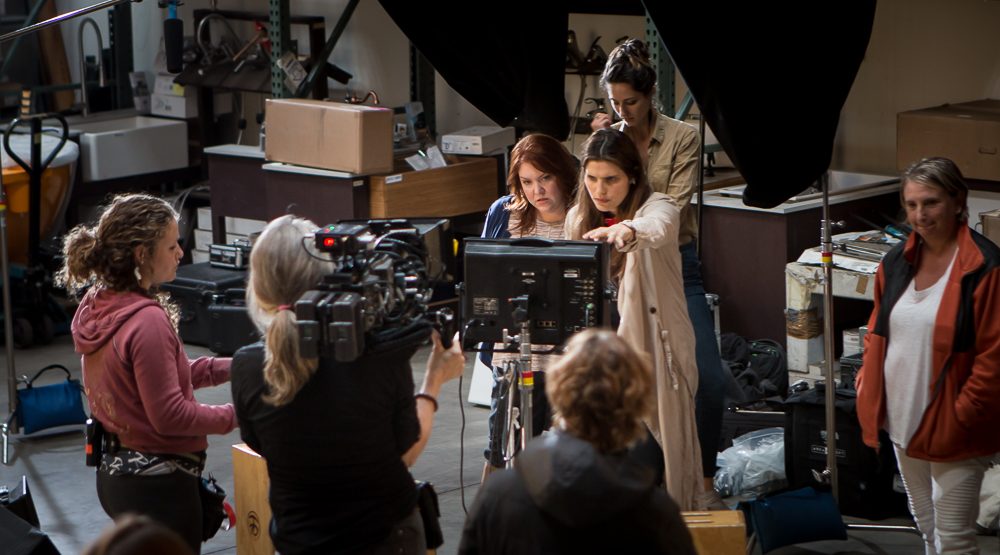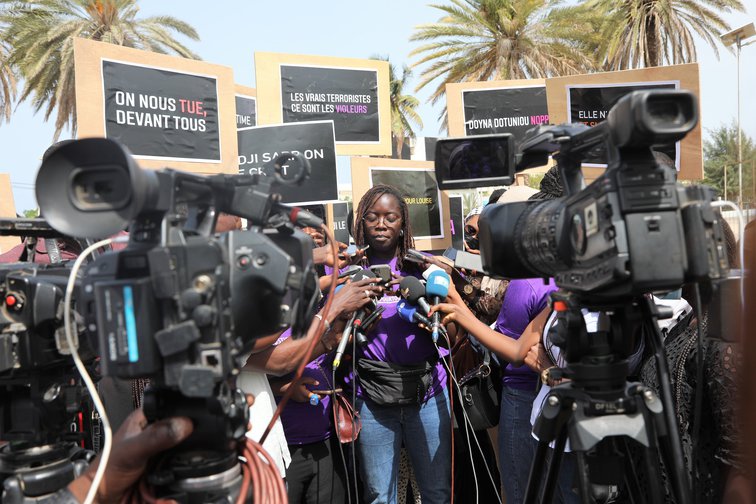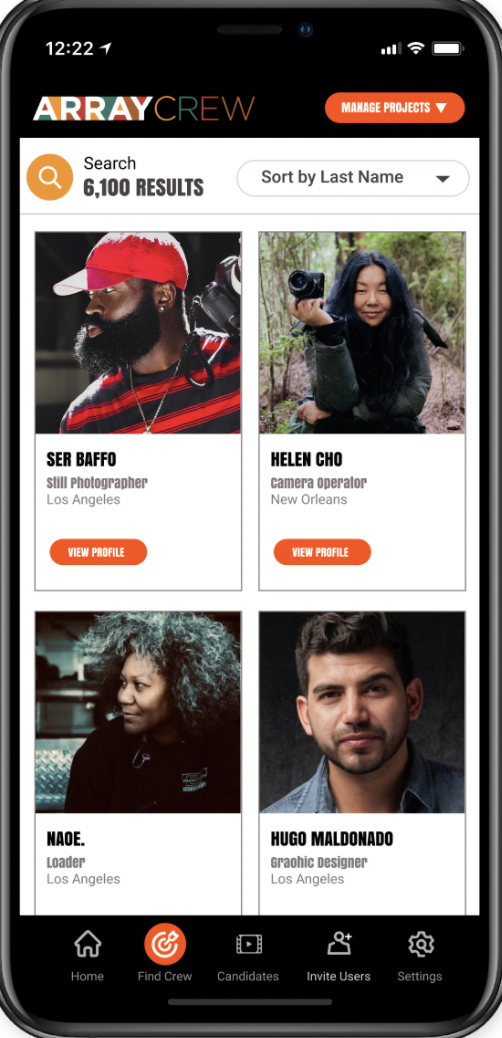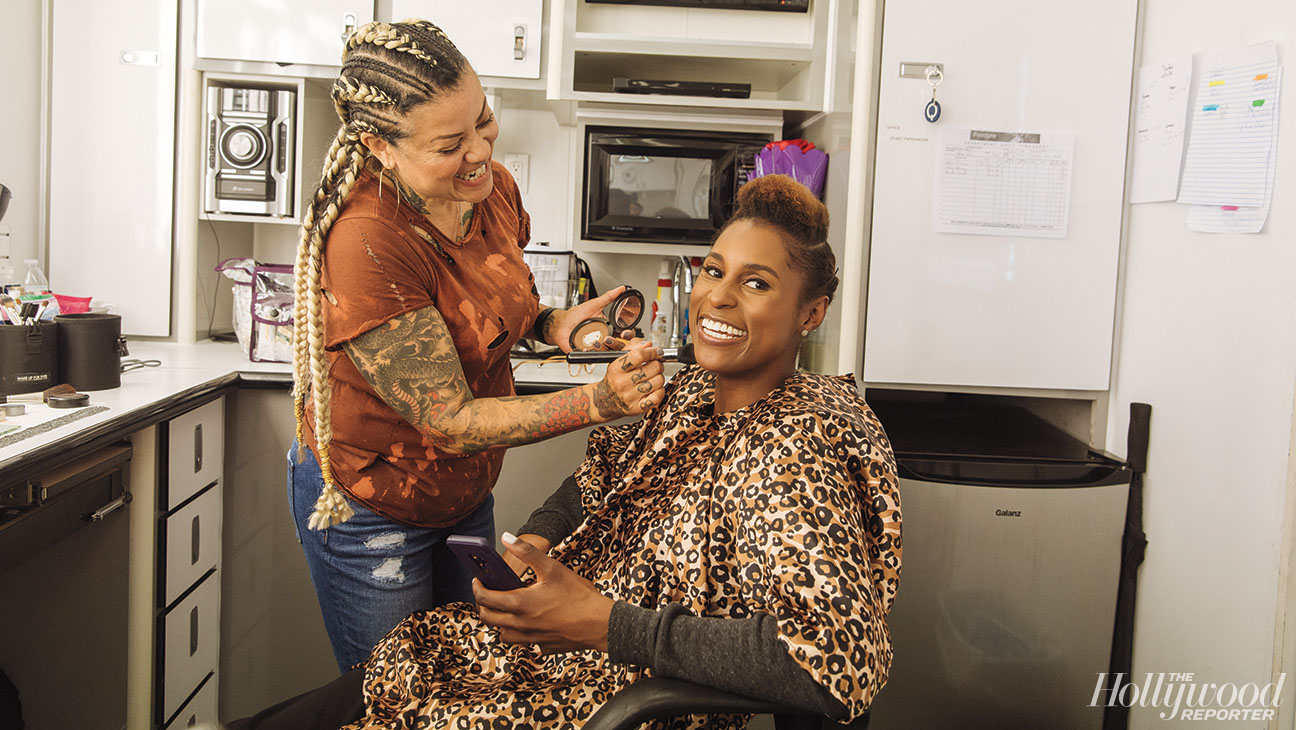Hiring Survivors
Here are some quantifiable steps you can take to ensure you’re supporting survivors in the hiring phase. Hire Survivors Hollywood can assist with these steps, or connect you to the people and resources you might need to complete them.
Production companies, filmmakers, and everyone who works in the entertainment industry should pledge to build a safer, more equitable industry by giving opportunities, auditions, and interviews to survivors and Silence Breakers. This includes never retaliating against anyone for coming forward about sexual violence, and committing to hiring on-camera talent, as well as department heads, crew, producers, directors, writers, showrunners, casting directors, and more.
Partner:



Crew members are often extremely vulnerable to abusive situations and there are many crew members who have been subjected to abuse that have not come forward publicly due to fear of retaliation. It is essential to make it known that your project, company, production, etc is committed to hiring survivors and creating a safe and equitable work environment for all.
It is essential that at least some Department Heads, on all projects, come from the survivor community. Survivors and Silence Breakers need to be represented in all areas of our industry in order for us to create a safer, more equitable Hollywood. Many department heads have not come forward publicly about their abuse due to fear of retaliation or seeming “weak”. It is essential to make it known that your project, company, production, etc is committed to hiring survivors and creating a safe and equitable work environment for all.
Visit SiteHire Survivors Hollywood has also built a hiring database of survivors for above and below-the-line roles.
Hire Survivors Hollywood can provide consulting on how to actively hire survivors in all departments, avoid working with abusers, and create a safe, trauma informed, inclusive, equitable production at every step in the process. They have successfully consulted on productions of every budget and size and have also consulted with major industry publications, all of which led to the interviewing, auditioning, and hiring os survivors, trauma therapists, and intimacy coordinators.
Hire survivors for all positions, roles, and departments.
For all positions, roles, and departments it is essential to identify those who have publicly come forward as survivors and Silence Breakers and then have the appropriate folks (producer, director, department head, casting director, etc) reach out to them for interviews, meetings, or auditions.
For all positions, roles, and departments it is essential to create a submissions system by which self identifying survivors who may, or may not, have come forward publicly can be considered for any and all job openings at your company or for a particular project or production.
For all positions, roles, and departments it is essential to make it known that your project, company, production, etc. is committed to hiring survivors and creating a safe and equitable work environment for all.
Visit Site
I think filmmakers could view enacting this pledge, or any inclusion effort for that matter, as “more homework” but it’s actually a great filmmaking tool to help navigate vulnerable topics with a consciousness that breathes life into our work, the performances, the story, and hopefully, of course, our audiences as well.

For all positions, roles, and departments, at no point is it appropriate to require any self identifying survivor to disclose the details or nature of their abuse, including (but not limited to) details about who abused them, when, or how. It is essential that everyone involved is trauma informed and respectful at every point in the hiring process.
For all positions, roles, and departments it is essential that folks be informed ahead of time of any potentially triggering materials/subject matter they may come into contact with during the project. For example, if an actor will have to audition with a scene that involves sexual violence, that should be indicated in the casting notice.
For all positions, roles, and departments it is essential to make sure that survivor representation is intersectional (e.g.survivors who are Disabled, BIPOC, LGBTQIA+, from Indigenous Communities, etc).
For all positions, roles, and departments: similar to other DEI initiatives, you should begin tracking how many folks you interview/audition and hire in each department/role and/or on each project from the survivor community with the aim of creating equitable hiring standards.
Get Toolkit

